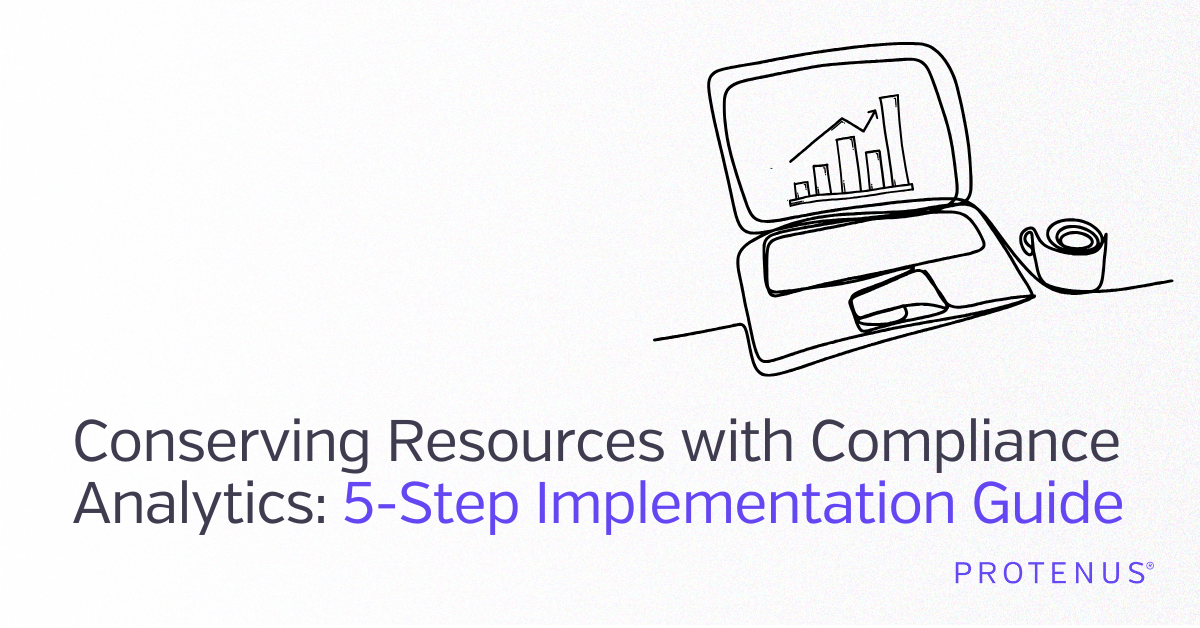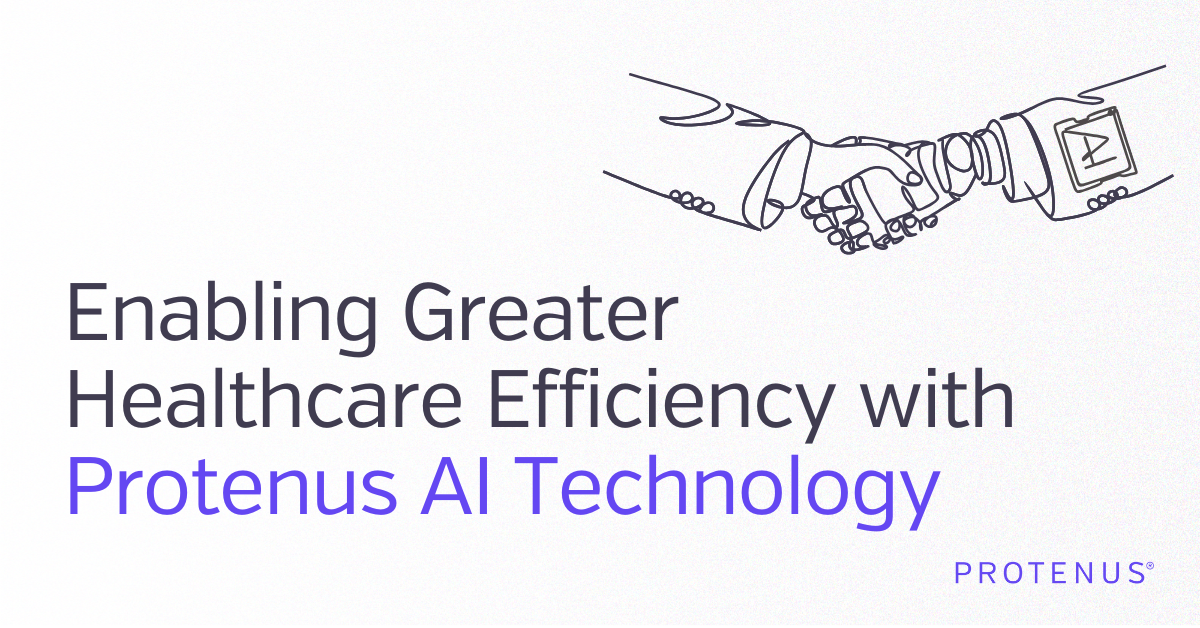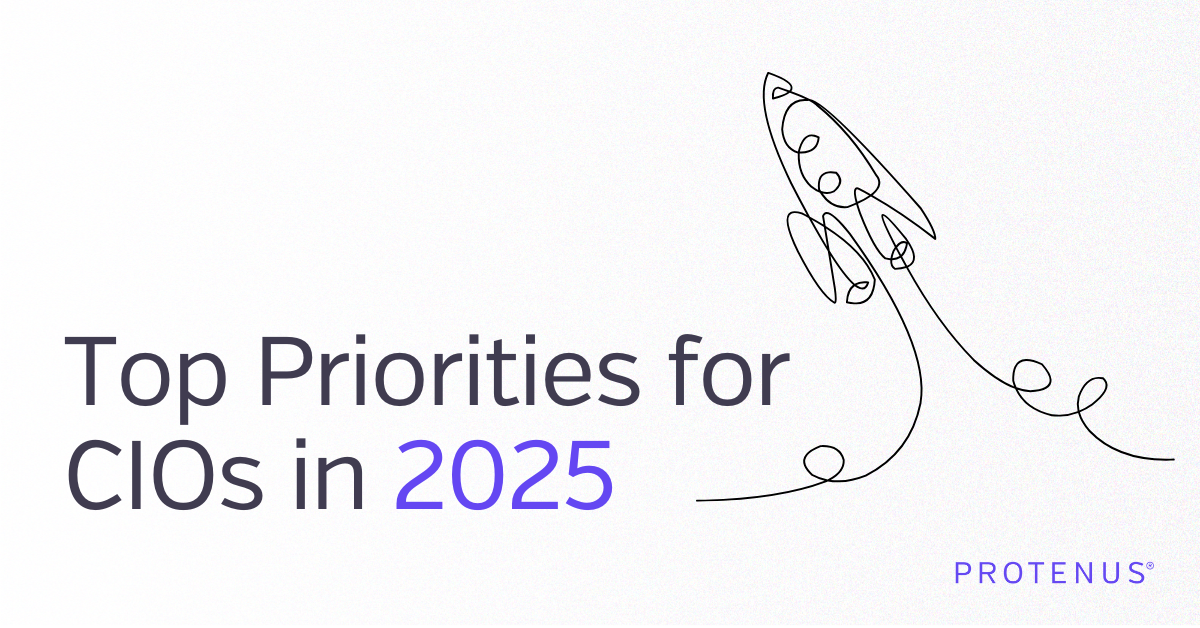Share this

Compliance Analytics: Adding Value to Healthcare Organizations
by Nick Culbertson, CEO and Co-founder, Protenus on April 29, 2020
In a time when privacy and security violations seem to have become pervasive, healthcare compliance analytics leverage artificial intelligence (AI) to help hospitals and health systems protect the privacy of the patients seeking care within their institutions. The Protenus platform reviews every access to every patient record and detects potential threats with unprecedented accuracy. For the average hospital, where accesses can sometimes total more than 20 million per month, the capacity AI offers is a critical element of a robust privacy compliance program.
Knowing this, how do organizations assign a value to AI? What’s the value of privacy and compliance teams? For institutions? Most of all, for their patients?
Here are just a few of the ways Protenus customers have experienced that value firsthand and why Protenus was named the 2020 KLAS Category Leader in Patient Privacy Monitoring.
Do More with Less (Much More)
When compliance officers are charged with keeping patient data safe but don’t have the necessary tools, it can lead to sleepless nights. Until recently, their options were limited: perform random manual audits of a tiny fraction of access events or use primitive tools that generated a flood of false positives requiring investigation as true threats slipped under the radar. Both methods were tedious and labor-intensive and ultimately did not adequately protect patient data.
By using the power of healthcare compliance analytics, healthcare organizations now have the ability to evaluate 100% of accesses to patient records and detect patterns that indicate suspicious behavior while holding false positives to a minimum. Privacy professionals can then focus on true threats and resolve cases in mere minutes instead of days or weeks. “Doing more with less” is a reality for teams whose work is enhanced with artificial intelligence: a small team with limited resources can now accomplish what was previously impossible.
Focus on Key Organizational Priorities
Compliance teams can easily spend weeks manually reviewing patient records and investigating false positives. By leveraging healthcare compliance analytics, teams can reclaim their time. The Protenus platform provides a quantum leap in efficiency for teams charged with preventing privacy violations. They can return their focus to top institutional priorities, making better use of their skills and experience for completing important tasks such as:
- Reviewing policies and procedures regarding the safe use of protected health information (PHI) to make sure they comply with federal and state regulations.
- Developing training programs and educating employees to foster privacy awareness.
- Creating and implementing policies and programs to ensure that Business Associates understand their privacy responsibilities, and are complying with HIPAA and other regulations.
- Examining the institution’s privacy forms and similar documents to ensure they reflect current policies and legal requirements.
- Reviewing state and federal privacy laws, making sure the institution's knowledge base is kept up to date.
Receive Actionable Intelligence
By using AI-powered analytics, Protenus helps customers bring clarity into their compliance operations and discover insights and trends in their work. With this information, they can then improve processes, reduce costs, and protect patients and institutions. Our customers report that by leveraging Protenus expertise, they have developed:
- The ability to respond promptly to incidents requiring immediate attention. Using AI technology, privacy teams can audit every access to patient data and proactively detect true threats, taking immediate action to mitigate the threat to the organization and its patients.
- Discover which roles or departments are most likely to violate privacy. This helps compliance teams decide where to focus efforts, whether that involves educating staff, revising procedures or increasing oversight.
- Understand what methods are reducing risk and better protecting patient privacy. The Protenus platform allows organizations to correlate initiatives to protect patient privacy with reductions in violations. Such “pre” and “post” tests allow these institutions to understand what measures work to prevent privacy violations and help ensure a culture of trust.
To learn more about our customers’ experience with the Protenus platform and why we are ranked #1 in patient privacy monitoring, download our KLAS report overview.
Share this
- December 1, 2024 (3)
- November 1, 2024 (1)
- October 1, 2024 (2)
- September 1, 2024 (1)
- August 1, 2024 (1)
- July 1, 2024 (1)
- June 1, 2024 (1)
- May 1, 2024 (1)
- March 1, 2024 (2)
- February 1, 2024 (3)
- January 1, 2024 (1)
- December 1, 2023 (1)
- November 1, 2023 (3)
- October 1, 2023 (3)
- September 1, 2023 (1)
- August 1, 2023 (1)
- July 1, 2023 (2)
- April 1, 2023 (1)
- March 1, 2023 (1)
- February 1, 2023 (1)
- December 1, 2022 (3)
- November 1, 2022 (3)
- October 1, 2022 (1)
- September 1, 2022 (1)
- August 1, 2022 (2)
- June 1, 2022 (4)
- May 1, 2022 (5)
- April 1, 2022 (1)
- March 1, 2022 (4)
- February 1, 2022 (3)
- November 1, 2021 (2)
- October 1, 2021 (3)
- September 1, 2021 (3)
- August 1, 2021 (3)
- July 1, 2021 (4)
- June 1, 2021 (2)
- May 1, 2021 (2)
- April 1, 2021 (2)
- March 1, 2021 (5)
- February 1, 2021 (1)
- January 1, 2021 (1)
- December 1, 2020 (1)
- November 1, 2020 (2)
- October 1, 2020 (2)
- September 1, 2020 (3)
- August 1, 2020 (2)
- July 1, 2020 (2)
- June 1, 2020 (6)
- May 1, 2020 (3)
- April 1, 2020 (4)
- March 1, 2020 (2)
- February 1, 2020 (4)
- January 1, 2020 (2)
- December 1, 2019 (2)
- November 1, 2019 (1)
- October 1, 2019 (1)
- September 1, 2019 (1)
- August 1, 2019 (1)
- June 1, 2019 (1)
- April 1, 2019 (1)
- February 1, 2019 (1)
- January 1, 2019 (1)
- December 1, 2018 (2)
- November 1, 2018 (2)
- October 1, 2018 (2)
- September 1, 2018 (3)
- August 1, 2018 (1)
- July 1, 2018 (2)
- June 1, 2018 (2)
- May 1, 2018 (1)
- April 1, 2018 (1)
- March 1, 2018 (2)
- February 1, 2018 (6)
- January 1, 2018 (2)
- September 1, 2017 (2)
- August 1, 2017 (2)
- June 1, 2017 (2)
- May 1, 2017 (1)
- April 1, 2017 (1)
- March 1, 2017 (2)
- February 1, 2017 (5)
- January 1, 2017 (2)
- December 1, 2016 (3)
- November 1, 2016 (5)
- October 1, 2016 (4)
- September 1, 2016 (8)
- August 1, 2016 (4)
- July 1, 2016 (4)
Subscribe by email
You May Also Like

Conserving Resources with Compliance Analytics: A 5-Step Implementation Guide

Enabling Greater Healthcare Efficiency with Protenus AI Technology

.png?width=1000&height=140&name=Bluesight%20%2B%20Protenus%20Logo%20%20(1).png)